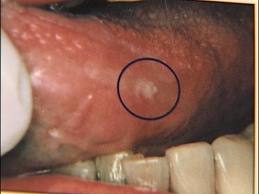California Dental Hygienists’ Association Stresses that
Aging Population Faces Unique Oral Health Risks
Baby Boomers, Seniors & Caregivers are urged to Make Oral Health a Priority
GLENDALE, Calif. (Oct. 2, 2012) –
With the population of older Americans on pace to double in the next two decades, seniors and those approaching retirement should take steps now to preserve a healthy mouth through theirgolden years, according to the California Dental Hygienists’ Association (CDHA).
“Aging baby boomers and seniors, and their care providers, should be paying as much attention to their oral care as they do to their cholesterol, skin quality, blood pressure and overall fitness,” said Susan Lopez, CDHA’s president. “This group faces unique oral health challenges, but with proper care there is absolutely no need for the aging process to be synonymous with tooth loss and related health problems.”
While it is commonly thought that tooth loss is a natural part of aging, CDHA officials say that professional prevention therapies help seniors manage their oral health needs allowing lifelong use of their teeth, which remain crucial for adequate nutrition and overall health.
Many older adults have a history of periodontal disease and or gum recession.
“The roots of teeth are softer and rougher than enamel, allowing more plaque to collect and making them more susceptible to root decay” said Lopez. “Without intervention and consistent care periodontal disease can lead to tooth loss. This is another important reason to receive routine dental care.”
Other threats to older adults are the common cavity and oral infections, incidences of which increase with age. Lopez notes that cavities are a contagious disease influenced by many factors, including, dry mouth, side effects from medicine, Alzheimer's, dementia and other mental or physical disabilities, along with access to care. Bronchopneumonia and respiration of oral pathogens are other concerns. The bottom line is, bacterial infections of the mouth can spread throughout the body and contribute to overall health problems.
The risk for cavities is increased with dry mouth – called xerostomia – which is one of the most common side effects of medications, she said. Saliva is important because it protects the mouth from cavities by naturally buffering acidic exposures and helping to move food debris out of the oral cavity.
“A depletion of saliva can come from prescription and over-the-counter medications. Some popular medications that can cause the dry mouth side effect include those prescribed for cardiovascular disease, arthritis, depression and postmenopausal hormone replacements,” said Lopez.
A lack of saliva can also stem from conditions such as Sjogren’s syndrome, HIV/AIDS, diabetes, Parkinson’s and even a medical history involving radiation to the head and neck.
CDHA offered the following tips to older adults to combat dry mouth:
- Drink water throughout the day
- Try xylitol products (a natural sweetener that prevents cavities)
- Use dry mouth sprays, lozenges or rinses on a regular basis
- Avoid soft and sticky simple carbohydrate foods
- Those taking medications and suffering from dry mouth, should ask their physicians if there is an alternative medication without xerostomic effects
- Regularly see a dental professional, who can recommend fluoride and preventive products to strengthen teeth
It is especially important for caregivers and family members to be vigilant in ensuring proper oral health care for seniors unable to care for themselves.
“Senior citizens suffering from physical disabilities or mental illness such as dementia and Alzheimer’s either cannot care for themselves or are in a long-term care facility that may lack access to an oral health care provider,” said Lopez.
Patients in nursing homes or who are homebound are encouraged to seek out the services of a specially licensed dental hygienist – known in California as a
Registered Dental Hygienist in Alternative Practice (RDHAP). Frequently oral
health care providers are notified only when an infection or problem is causing the senior pain or inability to eat.
Prevention is better than emergency care. RDHAP’s can provide and administer oral health care for patients with special needs, using mobile equipment, at their place of residence on a scheduled basis. Such services often can be billed to insurance.
For seniors with arthritis and other struggles that make it difficult to hold a toothbrush or floss, CDHA recommends:
- Electric toothbrushes
- Modification of a manual toothbrush with a tennis ball, bike handle, or some foil around the toothbrush handle to make it larger and easier to hold
- Alternatives to floss, including toothpicks, Waterpiks, proxybrushes, and other options, which can be discussed with their oral health care providers
“There will be 72 million older adults in the U.S. by 2030,” said Lopez. The need to address the specific needs of older adults is increasing. CDHA emphasizes the importance of oral health in all populations, and is a leading oral health resource. Please visit our website at
CDHA.org for more information.
The California Dental Hygienists’ Association (CDHA) is the authoritative voice of the state’s dental hygiene profession. CDHA represents thousands of dental hygienists in California and is dedicated to expanding opportunities for the profession and access to care for all Californians.
# # #





